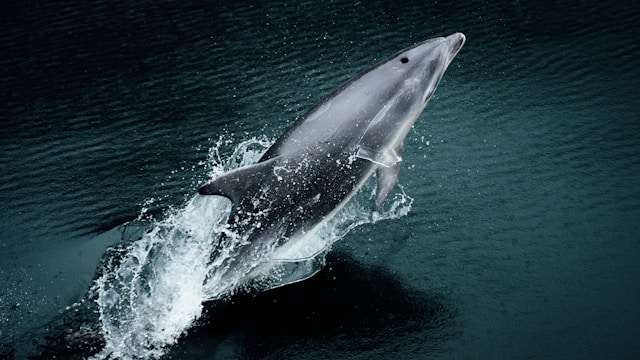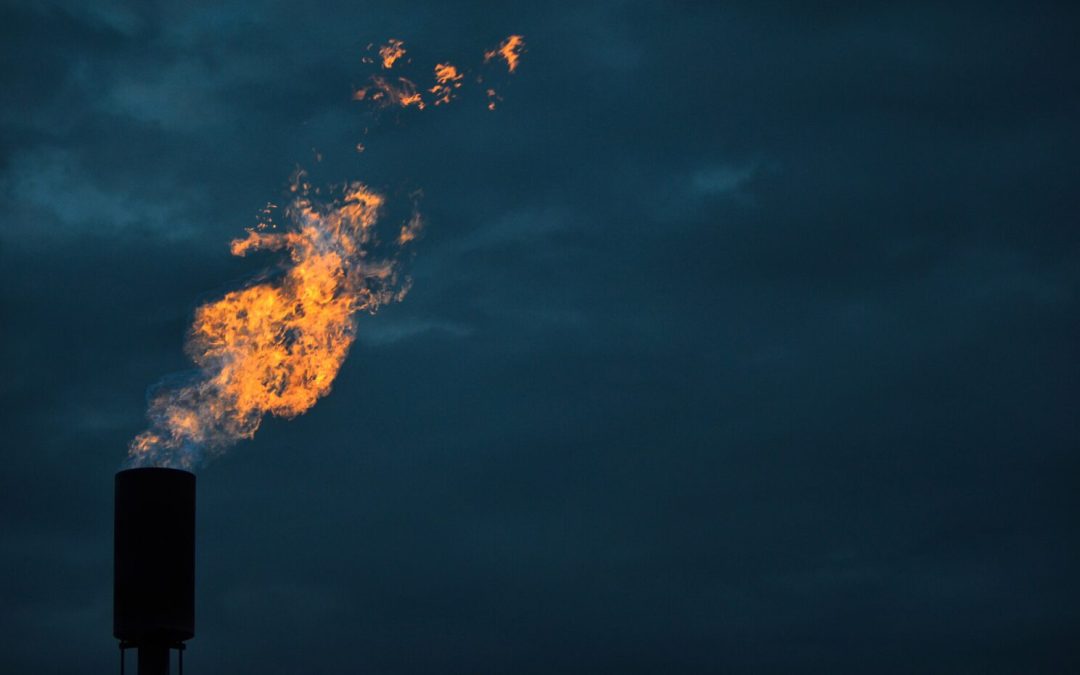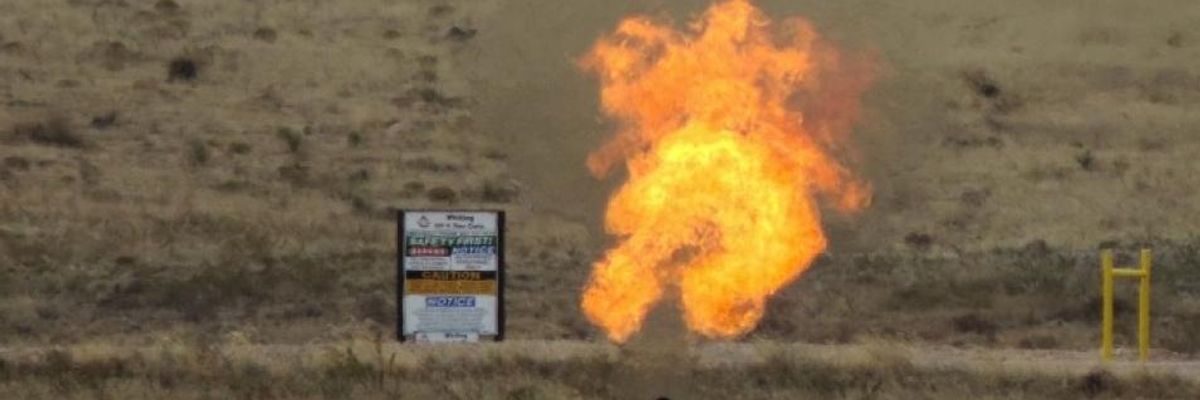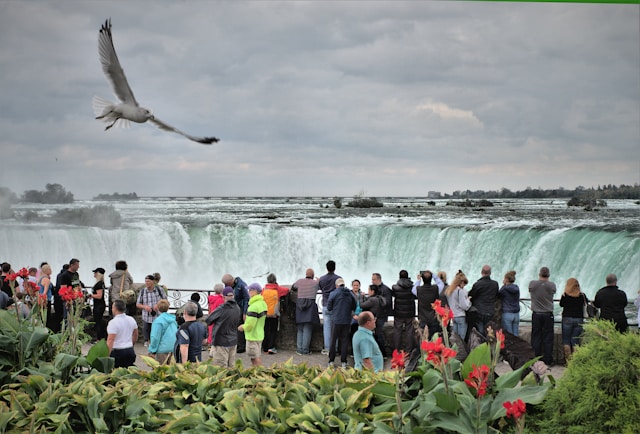By Christopher Ketcham / COUNTERPUNCH
A crowd of 3,000 anti-tourism protesters descended on posh downtown Barcelona last July, their demeanor one of delighted malice. They cordoned off hotels and eateries with hazard tape, as if demarcating a crime scene. They sprayed with water guns the blithe holidaymakers seated in restaurants. Video footage showed unhappy couples and glowering young men chased from their seats by the mob, stunned at the indignity.
The protesters shouted, “Tourists go home.” They held signs that said, “Barcelona is not for sale.” They spoke of “mass touristification” and inveighed against the greed of restaurateurs and hoteliers and Airbnb landlords profiting from the madding crowd while the average Catalan struggled to meet the skyrocketing costs of daily life. One of the protesters told an interviewer, “The city has turned completely for tourists. What we want is a city for citizens.”
The revolt in Spain — resident population 47 million; yearly visitation 85 million — is no outlier in the hypervisited destination countries of Europe. In Greece and Italy, for example, residents also rose up this year to say they will accept no more the invasion of their native ground, as mass visitation strains to the breaking point infrastructure, natural resources – especially water – and, at last, social sanity.
It’s the culmination of years of exploitation and maltreatment, said writer Chris Christou, who produces “The End of Tourism” podcast. “In the last decade, especially in southern Europe,” Christou told me in an email, “we’ve seen local movements sprout and mobilize —typically from the grassroots Left — against the relentless conversion of home into a veritable theme park for ignorant foreigners.” Christou has documented the industry’s long train of offenses: environmental degradation; cultural appropriation and what he calls petrification (“the stasis or congealing of culture’s flow or growth”); spiraling economic inequality; the Airbnbization of dwelling; gentrification and displacement; corporate and government nepotism; the revolving door of corruption between tourism bureaus and industry; the rise of an extremely precarious labor force; and, not least, “the spectacled surveillance of place that effectively turns home, for local residents, into a turnstile Disneyland.”
Mainstream media during the summer figured out there was a story here. In the New York Times, the Guardian, Bloomberg, Forbes, and Reuters, the scourge of “overtourism” made headlines for the first time. The images of thronged locales published across the web and in newspapers had the quality of Hieronymous Bosch’s paintings of hell: people piling on one another, grasping, motioning, their forms indistinguishable, as the newly empowered consumers of the burgeoning global middle-class swarm across Earth in record numbers.
There is no end in sight to this growth, as it appears to be the norm of fossil-fueled footloose modernity. In 1950 there were 25 million international tourist arrivals. Twenty years later the number had jumped to 166 million, by 1990 it was 435 million, and by 2018 it hit an all-time pre-Covid high of 1.442 billion. By 2030, almost 2 billion tourist arrivals are projected.
In Barcelona, the big money is not in maintaining a city for citizens but in the flux of Boschian creatures. Some 26 million visitors crammed into Barcelona in 2023 and spent nearly $14 billion. The Barcelona city council and the Catalan government dedicate millions of tax-payer euros to ensure this continual flow through global marketing campaigns that sing the city’s praises.
The pressures from hyper-visitation and the greed of those who profit from it have become so great that residents have formed the Neighborhood Assembly for Tourism Degrowth, whose purpose is to reverse the toxic touristification process. The group’s co-founder, 48-year-old Barcelonan Daniel Pardo, described touristification as “a transformation enacted on a territory and a population” by governments in collusion with commercial interests. He believes that degrowth of tourism means regulating it nearly out of existence.
“It means not only regulating tourism markets but promoting other activities in order to reduce the weight of tourism in the economy of the city,” Pardo told me. Most important is the recognition of the almost pathological dependence on tourism in Barcelona and the many places like it. The city has been shown to be painfully vulnerable to any unexpected crisis that upends travel patterns.
“It happened with Covid,” said Pardo, “happened before that with a terrorist attack, and before that with a volcanic explosion in Iceland.” And it will happen, sooner or later, because of the climate crisis and unleashed geopolitical chaos. “Better than keeping on the tourism wheel, which smashes lives, territory and environment, let’s plan a transition process for Barcelona which reduces this risky dependance,” Pardo told me. “How? Not easy to say, since nobody is trying that almost anywhere.” 
One place to start is with the ideological error in how we think of leisure travel as a right rather than a privilege.
“The right to fly does not exist. The right to tourism does not exist,” said Pardo recently on the End of Tourism podcast. “You cannot extend a model of tourism everybody thinks about to all the population. It’s impossible.” Pardo added in an email to me that the central issue is “about the limits of the planet, something so many people absolutely do not want to hear about.”
The tourism explosion can reasonably be explained by the IPAT math formula used in the ecological sciences. Intended to measure how endless growth of modern industrial civilization strains a finite Earth, the formula states that impact equals population times affluence times technology.
With IPAT in mind, one could argue that too many would-be travelers with newly acquired affluence have access to new technologies. Easy online bookings and guides, smartphones in general for facilitating and smoothing the travel experience, high-quality digital photography and video equipment made available for use by amateurs on social media, with its influencers driving place-based envy and desire — all this combines in a noxious stew on an overpopulated planet of societies abased by lust for money.
***
I have watched the touristification process wreck lives in an American city I once considered a place to settle and raise a family. Moab, Utah, is called “the adventure capital of the world,” and the hordes converge on it for exploration of the surrounding desert wildernesses on vast public lands that include two legendary national parks, Arches and Canyonlands. In the last 20 years, the city has become a nightmare of hypervisitation. The Utah state government and a cabal of elites – landowners, businesspeople, speculators, moneylenders, rentiers – have joined to market Moab across the United States and globally so that huge profits can be reaped from a harvest of ever-increasing numbers of tourists.
The effect is no different from that in Barcelona, especially in the spawning of a precariat working class in Moab. These are the service-industry peons at the bottom rungs of a system of economic inequality that has only worsened with hypervisitation. Many are driven out of town by the high cost of living and end up car-camping on public lands, where they are vulnerable to predation. Such was the case of Kylen Schulte and Crystal Turner, a gay couple described as “deeply in love” and who lived out of their car, who were stalked and murdered in August 2021. As my friend Laurel Hagen, attorney and long-time Moab resident and mother of two young children, put it to me, “Moab’s people are being fed slowly but surely to the tourism Moloch.”
The beneficiaries are also the same as in Barcelona. “Those who benefit the most from hypertourism,” Jon Kovash, a writer and radio journalist in Moab, told me, “are the hedge funders engaged in raping the town. Anybody selling gasoline or liquor or restaurant food. Realtors and land pimps. The internet lodging industry.” Kovash also includes in this list of villains what he calls the “adventure scammers.” These are the businesspeople who seek to convince the public of the need for paid guides or expensive mechanized rent-a-toys to get into the backcountry, when all one needs really is boots, backpack, a compass and map and a modicum of courage. (I lived in Moab for several years and spent glorious times in the backcountry without spending a nickel.)
Moab’s citizens are today under assault “like never before” – so longtime friends in town tell me – with the arrival of the UTV tour industry. Utility task vehicles, or “side-by-sides,” are small, powerful four-wheel-drive autos designed for aggressive driving both off-road and on. Piston, camshaft, clutch, gearbox, and various belts produce extraordinarily high levels of noise. Renting a UTV to tear about Moab and into the surrounding desert at full blast has become the thing to do.
“People in Moab should be defending their homes against UTV colonization and the violence of noise pollution,” Christian Wright, an author and former National Park Service historian, told me when I first met him in 2022. Wright, who in 2019 published a book about radicalized “miners for democracy” in the coal towns of the American West, had himself been radicalized by the torture of years of living around UTVs in Moab. The machines, he said, “are destroying the peace, harmony, and friendliness that once characterized Moab Valley. Do we not have mountains of evidence that the constant noise leads to elevated heart rates, discontentment, and unprecedentedly colorful manifestations of language?”
The problem became so widespread that some Moabites, who happened to be parents dealing with infants terrified of the sound of the machines, described UTV tourism as a danger to the health of children. Jon Kovash and his daughter Josie Kovash, who lived a few blocks from her dad and was herself a new mother, produced a radio documentary in 2021 cataloging the complaints of besieged residents.
None of these concerns were aired in a political vacuum. Officials of Grand County, of which Moab is the seat, noted that their offices had in recent years received more complaints about noise than about any other issue. According to former Grand County prosecutor Christina Sloan, the impacts on residents included “stress-related illnesses, high blood pressure, hearing loss, sleep disruption and lost productivity,” along with “feelings of isolation,” “lowered morale” and “emotional trauma.”
Acting on these concerns of the great majority of Moabites, the city in 2021 placed restrictions on UTV businesses and daily tours, setting up an enforcement system to reduce noise levels – only to see the Utah state legislature, friend to the industry, kill the local ordinances with passage in 2022 of an extraordinary bill that appeared to violate municipal sovereignty. The infamous Blue Ribbon Coalition, a rightwing astroturf lobby group funded by fossil fuel companies and auto manufacturers, joined the fray with the filing of a lawsuit against the city of Moab for the attempt at regulation. Christina Sloan declared the 2022 pro-UTV bill “an illegal restraint on county and municipal constitutional police power. ” It turns out Utah is now the only state in the union that has made UTVs street legal while also prohibiting municipalities from opting out of their use on streets.
Such is the hypocrisy that one finds everywhere across the rightwing American West: local sovereignty is sacrosanct only so long as it doesn’t conflict with industrial profits. In this case, tourism trumped both liberty and democracy.
***
As a global force of havoc in the natural world, tourism is well-known to be “one of the leading sectors with deleterious effects on the environment.” The air travel related to tourism accounts for 8 percent or more of all greenhouse gas emissions. Tourism is anathema to biodiversity, implicated in producing wildlife deserts, as masses of people in animal habitat tend to adrenalize the animals and scatter them while impairing the habitat with dispersed pollutants. Backcountry tourism in Colorado, to take one example, has caused the die-off of elk populations.
Tourism is implicated in diminished freshwater supply for local residents. It increases the chance of contamination from sewage and chemicals, soil erosion from trampling, and the accumulation of waste and air pollution. Craig Downs, a toxicology expert who runs the Haereticus Environmental Laboratory in Virginia, has found that sunscreen effluent from mass tourism produces “a cascade of insults to the ecological structure” of both marine and freshwater ecosystems, reducing the life cycle viability of aquatic wildlife – in other words, poisoning the animals to the point they can no longer reproduce.
Tourism is also a source of enormous volumes of noise pollution. The effect of noise pollution on human health is well-documented. Over time, it is debilitating to body and mind, and the problem is only getting worse with the growing din of technoindustrial civilization. What about the effect, on a captive population, of the peculiarly grating racket of UTVs? Moab is an experimental site, one resident told me, “to see how people react to the presence of high-pitched whining machines. I think we are guinea pigs and the goal of the experiment is to see how long it takes to drive us nuts.”
Christian Wright, the historian who worked for the National Park Service, was driven almost to the edge. His case, sensationalized and twisted in the media, made headlines across Utah. On February 17, 2023, he was surrounded at a gas station in Moab by heavily armed police. He was arrested, and his house was raided and searched. Police found five AR-15-style assault rifles, along with a stash of psychedelic mushrooms, possession of which made it illegal under Utah law to own the guns. His phones, computers, and hard drives were also seized. Local newspapers declared him a terrorist in waiting.
The evidence marshaled to justify the raid and arrest was that Wright may have participated in a vandalism campaign in which stickers were glued to various public objects in town, including utility poles. The campaign, I later learned, involved numerous Moabites who were posting such stickers. Wright was not some lone nutter. One of the stickers said DEATH TO INDUSTRIAL TOURISM: it burns oil – destroys habitat – low wages – expensive housing. Another said UTV NOISE IS CHILD ABUSE, and another said UTV NOISE IS RAPE CULTURE.
A sticker that Wright gave me as a gift was the old chestnut, DIE YUPPIE SCUM. Another that police allegedly found in their raid of his house was decorated with an image of an assault rifle and stated, DEFEND YOUR HOME, RESIST UTV NOISE HARASSMENT, ABUSIVE TOURISTS & SLC POLITICIANS TAKE NOTE: MOAB IS NOT YOUR WHORE.
I had been corresponding with Wright for close to a year prior to his arrest, and we had become friendly. Nothing in our exchanges suggested he was dangerous to people (though he might have been dangerous to property, which in the United States can be a worse crime). We had gone on long hikes together in the desert backcountry when I visited him in the snowy January of 2023, navigating the treacherous ice of red rock cliffs to collect in our backpacks the plastic detritus – mostly water bottles – that hikers had left in remote canyons of Arches National Park the previous summer. We had gone out boozing at a Moab saloon and had a fine time getting drunk. We played music in his basement, me on his drums, he on piano. He had a punk-rock style, with his mullet and leather jacket. He was aggressive in a gentle way, and a weirdo, and maladjusted (I can relate).
Yet here was Wright, one month later, confined to a holding cell in the Moab city jail, charged with crimes – terroristic threats, illegal possession of assault rifles and drugs – that made him sound like a lunatic ready to burst. It’s true that he had sent Grand County attorney Christina Sloan a letter, in 2022, stating that he wanted to chop up with an ax the owner of a UTV rental company that operated next door to the house he owned in Moab. The unceasing UTV traffic was like a jackhammer in his brain. He made no attempt to communicate with the person he wanted to kill, however, but only told prosecutor Sloan of his intentions – which is not how one usually conducts a death threat.
Sloan herself came to his defense in an article she published following his arrest. “I’ve watched this smart, articulate, engaged, empathetic human fall apart over the last two years,” she said of Wright. “It has made me feel more passionately than ever that noise pollution is a significant public health issue that needs our full attention.” Sloan recalled Wright’s comments on UTV tourism to the Grand County Commission in April 2021, noting that “he and his mullet were vibrant and refreshing.” Wright, she said, “articulately countered the pro-[UTV] conservative talking points hailing the supremacy of the American dollar above all else.”
Not long after his arrest, Wright was remanded for four months to a mental health facility in Utah, where he was treated for post-traumatic stress disorder. He appreciated the care from the loving staff but didn’t enjoy being regarded as a “terrorist” based on slander spread by Moab authorities. As of this writing, he is back in his home, and most of the charges against him have been dropped.
***
The conflict over hyper-visitation plays out wherever there are lovely places that people want to consume as travelers. In my backyard, on the highlands along the Hudson River valley north of New York City, a man named Dave Merandy, ex-mayor of the touristed village of Cold Spring, is fighting to stop the flood of people on his home ground.
The Hudson Highlands is a major draw with its green hills and handsome cliffs that afford scenic views of the wide Hudson. The area already attracts hundreds of thousands of people a year. Merandy, who stepped down as mayor of Cold Spring in 2021 after seven years of service, is a leader in the opposition to a planned expansion of tourism amenities that will likely increase the number of visitors in the Highlands to more than a million per annum. Known as the Fjord Trail project, the expansion is supported by the New York State government, numerous environmental NGOs, and a friendly neighborhood billionaire named Chris Davis, heir to a Wall Street fortune who considers himself the lord over the commoners in this stretch of rural New York.
Why stop the growth of tourism in the Highlands? “Because we already have enough,” Merandy told me during a visit at his house. “We don’t need more people.” He understood with clear eyes that the conflict was part of a global problem. “Nobody wants to address overpopulation. Everybody thinks it’s sustainable. We think we can just keep growing and growing. It’s crazy. This is a case where we want to have as many people as possible. You only have X amount of acres that can sustain a certain number of people. But then we tell ourselves, just bring them in, more and more and more. Put up a neon light, have a ribbon cutting, and everybody will say Chris Davis the billionaire is a hero.“
After I left Merandy, I stopped at a busy intersection on Route 9, in the town of Fishkill, where a masked man stood in the median in a black robe that whipped in the wind of the passing cars. He wore the infamous Scream mask and a big analog clock around his neck. This, obviously, was the Grim Reaper. I stopped to ask him what he was doing. “I’m Death,” he said. “And I’m reminding people they’re going to die.”
It struck me that, yes, lots of us are going to die a lot sooner than we expect if the growthist monster isn’t stopped. Climate change and ecological collapse, driven by overpopulation coupled with affluence-seeking, will kill out not only the beautiful wild things worth keeping on this planet but also a large part of humanity that hasn’t the money to buy its way out of collapse.
The place to build opposition to the monster is in your backyard, where the consequences are most painfully felt. En revanche, the prostitutes of business-as-usual – say, the billionaire lords up in the manor – will curse and slander you, declare you reactionary, the enemy of “progress,” and, perhaps worst of all, a nimby, somebody who wants selfishly to keep the backyard all to yourself. Merandy, who grew up in the Highlands and learned there a love of nature, has been called all these things, as have the resisters in Barcelona and Moab.
Wright and Merandy and the Barcelonans armed with water guns are all engaged in the same fight in defense of the place they call home. They have the right and the duty to take their stand. And history will prove them to be honorable. Those who oppose mass tourism today are in fact doing a service for humanity tomorrow. The reality is that travel as we know it will have to end if society is to meet the reductions in carbon emissions to keep warming below catastrophic levels. The tourism industry – along with the billions who see an exotic vacation in their near future – will not accept that judgment.
An abridged version of this piece first appeared at Truthdig.








